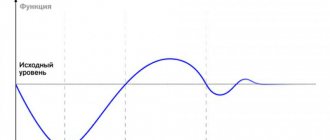Sweet, sound sleep depends on how well a person has prepared for it in the evening. An important role here is played by dishes that are eaten shortly before going to bed. How to prevent insomnia, fall asleep quickly and enjoy pleasant dreams, and how many hours before bedtime can you eat without harm to your health?
General rules for eating before bed
How long is it better not to eat before bed, and can mistakes in evening meals cause insomnia? If you turn this question to reliable medical reference books, you will find out that the general requirements have not changed for decades - it is not recommended to eat food three hours before going to bed.
Another question that arises is what is healthy to eat and is it right that we eat dishes that look tempting but have an adverse effect on sleep? Doctors warn that not all foods have a beneficial effect on dreams, and after an evening snack you will only be left wondering where insomnia came from. To avoid trouble, it is better to understand in advance what you can and cannot eat.
Basic rules to remember:
- distribute the diet correctly - during the daytime portions should be larger than at dinner;
- in the evening, give preference to dishes rich in carbohydrates;
- do not eat food later than 2-3 hours before going to bed;
- Do not injure the body by completely refusing to eat - this causes stress, health problems, digestive disorders, and deterioration in overall well-being.
Another rule is not to forget that some drinks are also harmful and have a negative effect on sleep, and their choice must be taken carefully.
What are the 3 main tasks of sleep?
Sleep is one of the most important conditions for maintaining our health. Among all the functions that it is designed to perform, three main ones can be distinguished:
1. Ensuring healthy metabolic processes - the results of a huge number of medical studies have shown that sleeping less than six hours a day leads to the fact that the body begins to take energy not from fat, but from carbohydrates and protein. Thus, muscle mass decreases, and the amount of adipose tissue, on the contrary, increases. In addition, the insulin content in the blood increases, and this already increases the risk of diabetes, as well as the development of cardiovascular diseases.
2. Recovery - the brain is cleansed of toxins and metabolic waste that accumulate during the day. Too much of them increases the risk of Alzheimer's disease and other neurological diseases.
3. Strengthening long-term memory - if sleep is interrupted, this does not allow the ability to form emotional and physical memories to fully develop.
Metabolism after six pm
Why is it so important not to eat 2 hours before bedtime, and what processes in the body are disrupted due to mistakes made? Bright daylight affects the level of glucose in the blood, the activity of the production of the sleep hormone and other processes, so at night the work of the digestive organs slows down significantly.
It is quite difficult to determine when the activity of the digestive organs decreases; this happens at different times for each person, which is why it is so important to maintain proper nutrition, this will help prevent insomnia. Consumption of fast carbohydrates will not be beneficial - the menu must be balanced. High-calorie food will be dangerous here - it will not have time to be absorbed before bedtime and will affect the sides and abdomen in the form of fatty deposits.
But the ban on eating immediately before bed is not only associated with fat accumulation. The fact is that a full stomach will interfere with falling asleep, and food will not be able to be digested normally while asleep. This will lead to morning sickness, constipation (especially if you eat heavily), and indigestion. It is also possible that you feel tired, because having eaten before going to bed, we force the digestive system to work all night.
It is important to know
- The diagnosis of obesity is made when the waist circumference in men is more than 94 cm, in women - more than 80 cm at any height. Correctly measure at navel level
- we must remember: we eat to live, and not “we live to eat”
- our recommendations are not a short-term diet, this is how every person who wants to be healthy, live longer and better should eat
- remember, for weight loss 80% is proper nutrition, 20% is physical activity
- physical activity can begin with walking for 30 minutes 3 times a week, gradually increasing the frequency and intensity of training (target speed - 6 km/hour, walk 3 kilometers every day in 30 minutes) is considered good intensity. Bicycling, swimming, running, and team sports also help well: volleyball, football, basketball, tennis. In good weather, it is preferable to exercise outdoors, in the morning, while you have the strength and the air is not yet heavily polluted with exhaust gases.
- the amount of fluid consumed is 30 ml/kg in healthy people, 40 ml/kg in obese people, but not more than 4 liters per day. Try to drink alkaline still water, the pH of which approaches 7. The alkaline or acidic state of water can be determined by special test strips for the oral cavity, which are sold in pharmacies. Here are some examples of water pH measured by us: Elbrussia - 7.0; Aqua Dombay – 6.5; Pilgrim – 4.5; springs of the Caucasus – 4.5; Mountain Top - 4.5 (from this it follows that preference is given to Elbrussia from Cherkessk and Akva Dombay)
- nutrition should be varied and balanced. Among protein products, preference is given to red fatty meats (beef, lamb), fish (preferably wild, not farmed and raised outside the wild), eggs, and fermented milk products. Eliminate fast carbohydrates completely (sweets, sugary drinks, white flour products). Replenish carbohydrates with vegetables and fruits, preferably fresh
- go to bed no later than 22.30, sleep duration is at least 7-8 hours. The sleep hormone melatonin is a fat burner. You need to sleep in a well-ventilated room with fresh air, at a temperature of +19 degrees
More information about the principles of a healthy lifestyle can be found HERE.
Optimal time for dinner
When and what you should eat – even experienced nutritionists and doctors do not have the same opinion on this matter. Some people believe that eating after 6 pm will affect your sleep at night and your body fat. Others argue that it is not the time that is important, but the break between the last meal and going to bed. Which of them is right, and what is best to do so as not to stimulate violations?
Most doctors say that the last meal should occur long before going to bed, the optimal time is 3 hours. Only as a last resort do they have a snack later, following the rules - for dinner, eat light food that is not enriched with calories. By the way, milk can be an excellent late-night snack. It has already been tested by many people: it promotes quick and quality sleep. A mug taken in small sips before bed is enough.
What can you eat at night
What can you eat if the night is ahead and you don’t want to ruin your sleep in any way by causing insomnia? There are many dishes, the consumption of which does not threaten sweet sleep and has a positive effect on overall health. It is useful to eat at night:
- boiled chicken breast (you can eat no more than 130 grams at night without harm);
- nuts (hazelnuts, walnuts, peanuts);
- vegetables, herbs (preferably uncooked or boiled);
- buckwheat, pasta (no more than 100 g);
- light dishes from vegetables, avocados, legumes without adding fatty sauces or hot seasonings;
- boiled fish.
The benefits of fresh fruits before bed are beyond doubt - the fruits will relieve hunger and allow you to sleep peacefully. It is important not to overuse even fruits - everything should be in moderation.
Pay attention to drinks too. Soda water, despite its low calorie content, is far from the best solution. It is recommended to drink a glass of kefir or natural yogurt - they will promote restful sleep without unpleasant dreams or frequent waking up. The only condition is that these drinks must be without sweet fillings.
Will I have trouble sleeping if I eat and go to bed? Doctors warn that even light, low-calorie meals stimulate insomnia, so you should definitely go to bed after 1–2 hours. Only this guarantees that nothing will interfere with your sleep.
Foods to eat in moderation
- milk and fermented milk products of normal fat content, and preferably homemade. Do not use low-fat dairy products!!!
- boiled potatoes, preferably steamed
- mature legume grains (peas, beans, lentils)
- whole grain cereals (no more than 6 tablespoons per serving). Eliminate semolina, white rice, instant cereals
- vegetable, meat and fish soups cooked in a second broth
- pasta cooked al dente (durum wheat only) (no more than 6 tablespoons per serving)
- bread and bakery products - not rich (preferably coarse or whole grain bread, 1-2 pieces per day)
- fruits (except those specified in the “exclude” paragraph)
- nuts, seeds
- eggs
“Moderate amount” means half of your usual serving. Food should be as natural as possible, “roughly cooked” - it is better to undercook than to overcook.
What not to eat at night
What exactly should you not eat and how many hours before bedtime is it better to have dinner? Even if you follow the recommendations of doctors or nutritionists and sit down for an evening meal no later than three hours before going to bed, not all dishes are allowed to be consumed. Some foods take a long time to digest, and it is they that cause sleep disturbances or stimulate insomnia. Doctors warn - eat easily digestible, low-calorie foods that will allow you to fall asleep quickly and will not cause inconvenience at night.
It is strictly forbidden to consume the following dishes, even in small quantities.
Ice cream
The sweet treat provokes a sharp increase in blood sugar, and the chocolate present in the composition contains caffeine, which excites the nervous system.
Red meat
One of the foods that takes a long time to digest. Even a few hours are not enough to fully absorb the beneficial elements. Red meat contains tyrazine, which stimulates brain function.
Chips
The spicy product activates the senses. Another problem that arises after consumption is severe heartburn until the morning.
Sweet cereal
They often contain a considerable number of components that increase blood sugar levels.
Pasta with hot sauce or plenty of butter
The combination of starch and carbohydrates negatively affects night's sleep, and spicy additions often provoke painful heartburn.
Pizza
This dish usually contains an abundance of sauces and meat, which cause heaviness in the stomach and heartburn.
Fruit salads
Not all fruits are good for sleep - many citruses and berries provoke frequent urination.
You should also avoid canned soups. Despite warnings from manufacturers, this product contains many additives and salt that cause thirst. Due to the concentration of such components, you will not be able to get enough sleep: you will often wake up.
A light snack after dinner is considered especially dangerous. Even if you feel a slight feeling of hunger, it is better not to satisfy it with foods that are heavy on the stomach - this will certainly negatively affect your night's sleep.
Foods that can be consumed without restrictions
- cabbage (all types), mushrooms, cucumbers, tomatoes, peppers
- lettuce, greens, spinach, sorrel
- tea, coffee without sugar and cream
- drinking still water
- meat (lamb, turkey, veal, beef). Avoid chicken, it contains a lot of hormones and antibiotics (you can only eat homemade chicken)
- wild fish
- zucchini, eggplant, beets, carrots, green beans, radishes, turnips, green peas (vegetables can be eaten raw, boiled, steamed, baked; frying is not recommended)
The use of fats (butter, mayonnaise, fats) in cooking is not allowed.
Night gluttony
It often happens that at night the body requires food. I have to wake up and go to the refrigerator. Such night hikes do not bode well - it is snacking instead of sleep that becomes the main cause of obesity. Nutritionists recommend satisfying your hunger before going to bed, and not at night.
Regardless of how many calories were consumed during sleep, the food will not be completely absorbed. There is only one reason here - all organs, including the digestive tract, work in slow motion at night. Thanks to this, most of the elements of the food consumed will be deposited on the sides and waist. Falling asleep after eating at night is also much more difficult - the stomach may require additional portions of food.
One way to cope with nighttime gluttony is to allow the body to be full during the evening meal. To do this, it is not necessary to increase food portions - it is better to introduce greens and vegetable fats into the diet, completely eliminating sweets and fast carbohydrates.
However, if you just can’t control yourself, get up at night with a feeling of wild hunger and go to satisfy it, this may be an indicator of health problems. You should definitely contact a therapist who will prescribe the necessary tests.
There are not so many secrets of proper nutrition that will help you enjoy a sound, sweet sleep. If you carefully understand all the features of the evening meal, you can not only forget about insomnia forever, but also feel the beneficial effects of foods on the body, cope with extra pounds, and stock up on energy and vigor overnight for the whole next day.
Products that need to be excluded or limited as much as possible
- vegetable oil (2 tablespoons per day is allowed, preferably vegetable, flaxseed) and only unrefined
- mayonnaise
- exclude meat raised with hormones and antibiotics, usually pork and chicken
- smoked meats, sausages, frankfurters, wieners
- canned meat, fish
- sugar, honey
- fruits and berries: bananas, grapes, dates, watermelon, melon
- preserves, jams
- candies, chocolate (if you really want it - 1/4 bars of dark chocolate with a cocoa content of 70-90%)
- pastries, cakes and other confectionery products
- cookies, pastry products
- ice cream
- sweet drinks (Coca-Cola, Fanta, etc.)
- alcoholic drinks (250 ml of dry red wine, 50-100 ml of vodka are allowed - maximum 2 times a week). Avoid beer completely!!!
Any cooking method is allowed (baking, boiling, steaming, grilling, frying), most importantly without adding fat. Try to use dishes that allow you to cook food without adding fat (steamer, special frying pans, oven, grill).










